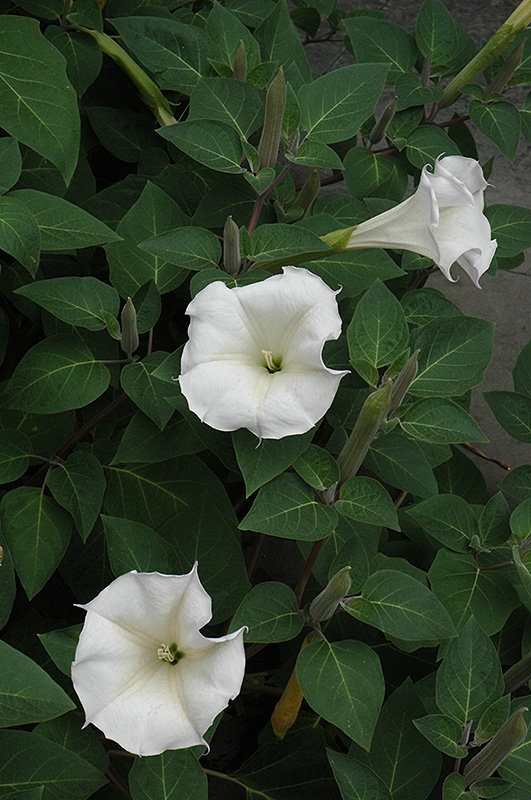Thorn Apple
Description
A low lying, short lived perennial with beautiful large trumpet shaped lavender-white flowers, that will spread over a large area; remove unripe fruits to extend blooming; all parts of this plant are highly poisonous
Landscape Attributes
Thorn Apple is an herbaceous annual with a ground-hugging habit of growth. Its medium texture blends into the garden, but can always be balanced by a couple of finer or coarser plants for an effective composition.
Thorn Apple is recommended for the following landscape applications;
Planting & Growing
Thorn Apple will grow to be about 24 inches tall at maturity, with a spread of 5 feet. Its foliage tends to remain dense right to the ground, not requiring facer plants in front. Although it's not a true annual, this fast-growing plant can be expected to behave as an annual in our climate if left outdoors over the winter, usually needing replacement the following year. As such, gardeners should take into consideration that it will perform differently than it would in its native habitat.
This plant does best in full sun to partial shade. It is very adaptable to both dry and moist locations, and should do just fine under typical garden conditions. It is not particular as to soil type or pH. It is somewhat tolerant of urban pollution. This species is not originally from North America, and parts of it are known to be toxic to humans and animals, so care should be exercised in planting it around children and pets.
Thorn Apple is a fine choice for the garden, but it is also a good selection for planting in outdoor pots and containers. Because of its spreading habit of growth, it is ideally suited for use as a 'spiller' in the 'spiller-thriller-filler' container combination; plant it near the edges where it can spill gracefully over the pot. It is even sizeable enough that it can be grown alone in a suitable container. Note that when growing plants in outdoor containers and baskets, they may require more frequent waterings than they would in the yard or garden.

